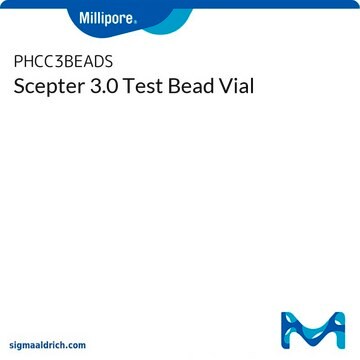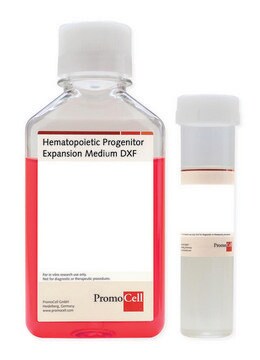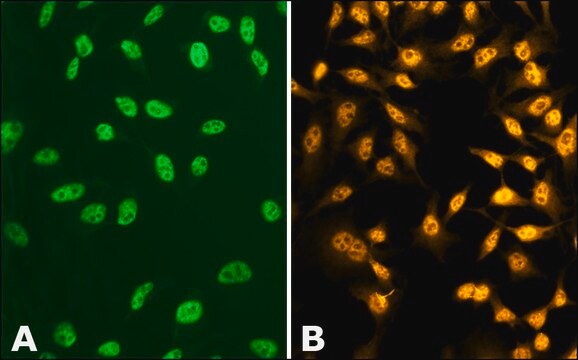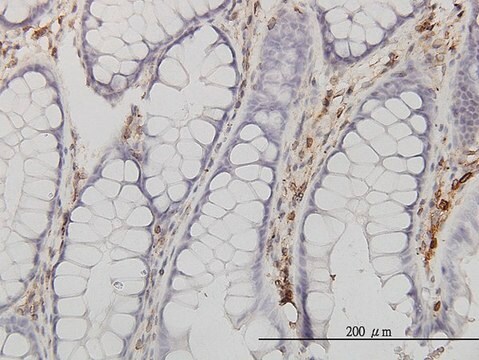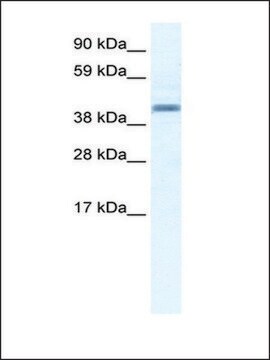A4475
Anti-Annexin VII antibody, Mouse monoclonal
clone 203-217/6, purified from hybridoma cell culture
Sinónimos:
Synexin
About This Item
Productos recomendados
origen biológico
mouse
conjugado
unconjugated
forma del anticuerpo
purified immunoglobulin
tipo de anticuerpo
primary antibodies
clon
203-217/6, monoclonal
Formulario
buffered aqueous solution
mol peso
antigen 47-51 kDa
reactividad de especies
mouse, canine, rat, chicken, bovine, human, rabbit
técnicas
immunocytochemistry: suitable using methanol or 1% paraformaldehyde/0.1% glutaraldehyde
immunohistochemistry (frozen sections): suitable
microarray: suitable
western blot: 0.5-1 μg/mL using whole cell extract of culture mouse connective tissue (A9) cells.
isotipo
IgG1
Nº de acceso UniProt
Condiciones de envío
dry ice
temp. de almacenamiento
−20°C
modificación del objetivo postraduccional
unmodified
Información sobre el gen
human ... ANXA7(310)
mouse ... Anxa7(11750)
rat ... Anxa7(155423)
Categorías relacionadas
Descripción general
Especificidad
Inmunógeno
Aplicación
- western blotting
- immunocytochemistry
- immunohistochemistry
Acciones bioquímicas o fisiológicas
Forma física
Cláusula de descargo de responsabilidad
¿No encuentra el producto adecuado?
Pruebe nuestro Herramienta de selección de productos.
Código de clase de almacenamiento
12 - Non Combustible Liquids
Clase de riesgo para el agua (WGK)
WGK 2
Punto de inflamabilidad (°F)
Not applicable
Punto de inflamabilidad (°C)
Not applicable
Elija entre una de las versiones más recientes:
Certificados de análisis (COA)
¿No ve la versión correcta?
Si necesita una versión concreta, puede buscar un certificado específico por el número de lote.
¿Ya tiene este producto?
Encuentre la documentación para los productos que ha comprado recientemente en la Biblioteca de documentos.
Nuestro equipo de científicos tiene experiencia en todas las áreas de investigación: Ciencias de la vida, Ciencia de los materiales, Síntesis química, Cromatografía, Analítica y muchas otras.
Póngase en contacto con el Servicio técnico
